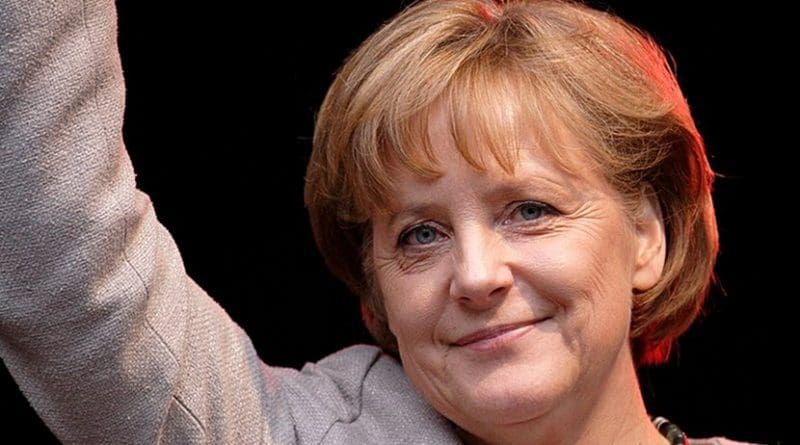Why Is Merkel Coming To Azerbaijan? – OpEd
By Matanat Nasibova
The upcoming visit of German Chancellor Angela Merkel to Baku this week is primarily aimed at achieving certain agreements on energy projects being implemented by Azerbaijan, Murad Sadigzade, a well-known Russian expert, president of the Russian Middle East Association, told Trend.
Merkel’s visit to Baku is expected on August 25. This is the first visit of the German chancellor to the South Caucasus region, which starts on August 23 from Georgia.
The political analyst said the situation in international relations is changing so rapidly that it becomes impossible to predict the processes even for the next month.
“However, there are always major trends that often go unnoticed among all events,” Sadigzade said. “The August 25 visit is among those that can change both regional and global agenda.”
He noted that Germany and other EU members are actively trying to diversify their routes and sources of energy supply in order to ensure national security and not be dependent on any supplier. Therefore, the possibility of acquiring energy resources through new gas corridors of Azerbaijan will be discussed, the political analyst added.
“I think all this is expected against the backdrop of the recent visit of Russian President Vladimir Putin to Berlin, during which the Nord Stream 2 project was discussed,” he said.
He noted that taking into account the interest of the EU countries in ensuring the sustainable development of their economies, a new era of the “Contract of the Century” may begin for Azerbaijan, and this era will make it possible to increase economic power and ensure sustainable growth.
Presently, Azerbaijan, together with partners, is implementing the Southern Gas Corridor project, designed to deliver Azerbaijani gas from the Shah Deniz field to European markets. On May 29, Baku hosted the ceremony of launching the first stage of the Southern Gas Corridor project. The gas will be supplied via the Trans-Anatolian Natural Gas Pipeline (TANAP) to Turkey (about six billion cubic meters per year), and further via Trans-Adriatic Pipeline (TAP) to Europe (10 billion cubic meters). After the completion of the TAP construction, the gas will be delivered to Europe in around early 2020.
“Even if energy issues are discussed in the first place, this in no way reduces the importance of other economic projects, especially for Baku, which seeks to increase revenues from the non-oil sector,” Sadigzade said. “I believe the transport corridors that will pass through the territory of Azerbaijan and connect the East with the West will be touched upon. In a successful scenario, the markets of the Persian Gulf and Asia will be opened for German products.”
Political topics of the talks will include coordination of positions between Baku and Berlin regarding security issues in the region, as well as the situation around the Iranian nuclear program, he noted.
“Moreover, this issue will be watched actively not only in the two countries, but also in Washington, as the US saw certain unusual development as its allies didn’t support new sanctions on Iran,” he said. “I think this fact is remarkable here.”
He added that if Baku confirms its commitment to continue full-fledged cooperation with Tehran, Azerbaijan and Germany will have one more point where their interests coincide.
“I believe the upcoming visit of Angela Merkel will give a new impetus to the development of bilateral relations between Baku and Berlin, and will also serve as a positive step in strengthening relations between Russia and the EU,” Sadigzade said.
He further noted that the settlement of the Armenia-Azerbaijan Nagorno-Karabakh conflict will be also discussed.
“Germany, being one of the leading states of the EU, has always openly declared its adherence to the norms of international law and supported the territorial integrity of Azerbaijan in the Karabakh conflict,” he said. “Berlin realizes that the existing status quo doesn’t suit Baku, because more than 20 percent of Azerbaijani lands are still under occupation.”
He added that Berlin will advocate an exclusively peaceful settlement of the conflict and, possibly, will try to influence the new authorities in Yerevan.

